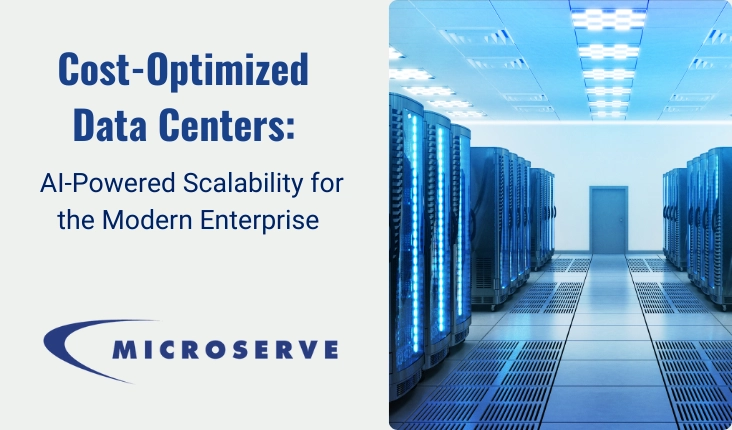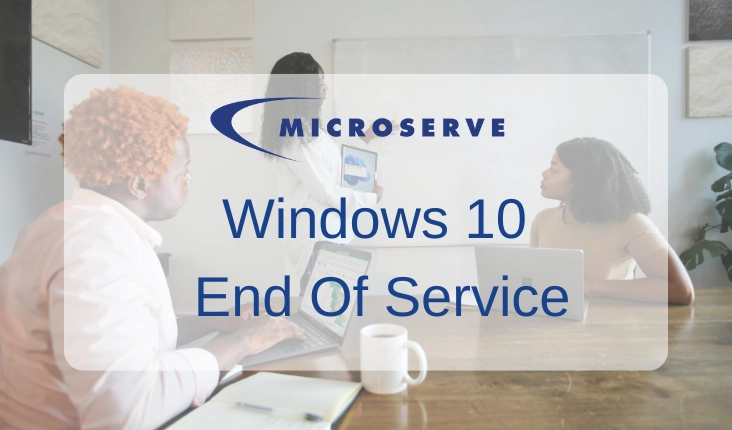In today’s fast-paced, technology-driven world, businesses of all sizes need reliable and efficient IT solutions to stay competitive. Managed IT Services have emerged as a popular option for organizations looking to optimize their IT infrastructure without breaking the bank. This comprehensive guide will explore the various aspects of managed IT services and help you understand why they might be the right choice for your business.
What Are Managed IT Services?
Managed IT services are provided by an external company, or Managed Service Provider (MSP), that remotely manages and maintains an organization’s IT infrastructure, including:
- Network and server management
- IT security
- Data backup and disaster recovery
- Cloud services
- End-user computing and support
Partnering with an MSP allows businesses to outsource their IT needs, enabling them to focus on their core competencies and strategic goals. Some of the main advantages of working with an MSP include cost savings, increased efficiency, and access to a team of IT experts.
Key Components of Managed IT Services
MSPs offer a wide range of services designed to help businesses optimize their IT infrastructure. Some of the key components of managed IT services include:
- IT Security: Protecting your business from cyber threats is crucial. MSPs can help by providing comprehensive IT security services that include firewall management, intrusion detection and prevention, and security patching.
- Cloud Services: MSPs can help businesses transition to the cloud by offering a range of cloud services, including infrastructure-as-a-service (IaaS), platform-as-a-service (PaaS), and software-as-a-service (SaaS).
- Data Center Management: MSPs can help manage your data center by providing server and storage management, network monitoring, and virtualization services.
- Backup and Disaster Recovery: Ensuring business continuity is essential. MSPs can help by offering backup and disaster recovery services to protect your organization’s critical data and applications.
- End-User Computing: MSPs can handle end-user computing needs by managing and supporting devices, applications, and user accounts.
- Modern Workplace Solutions: MSPs can help businesses create a modern workplace by implementing collaboration, communication, and security tools that foster productivity and efficiency.
- Managed Print Services: MSPs can optimize your printing infrastructure with managed print services, which include printer management, toner replacement, and usage monitoring.
- IT Procurement: MSPs can help with IT procurement by sourcing hardware and software, negotiating contracts, and managing vendor relationships.
- IT Consulting: MSPs can provide IT consulting services to help businesses develop IT strategies, implement new technologies, and optimize their IT infrastructure.
Benefits of Managed IT Services
Working with an MSP offers a number of benefits, including:
- Cost savings: Outsourcing IT services can help businesses save money by reducing the need for in-house IT staff and lowering infrastructure costs.
- Access to IT experts: MSPs have a team of IT professionals with diverse skill sets, ensuring that your organization has access to the expertise needed to manage and maintain your IT infrastructure.
- Scalability: As your business grows, an MSP can easily scale its services to accommodate your needs, ensuring that your IT infrastructure remains efficient and reliable.
- Proactive maintenance: MSPs proactively monitor and maintain your IT infrastructure, identifying and addressing potential issues before they become problems that impact your business.
- Enhanced security: With a focus on IT security, MSPs can help protect your organization from cyber threats, ensuring that your critical data and applications remain secure.
- Improved uptime: MSPs work to minimize downtime by proactively managing and maintaining your IT infrastructure, helping to ensure that your business runs smoothly.
- Strategic planning: Working with an MSP can help you develop a long-term IT strategy that aligns with your business goals and objectives.
- Customized solutions: MSPs can tailor their services to meet the unique needs of your organization, ensuring that your IT infrastructure supports your specific business requirements.
- 24/7 support: With round-the-clock support, MSPs can quickly address any IT issues that arise, minimizing the impact on your business operations.
- Better focus on core competencies: Outsourcing your IT needs allows your business to focus on its core competencies, freeing up valuable time and resources to drive growth and innovation.
To learn more about the advantages of managed IT services, check out our blog post on the 10 benefits of managed IT services for your business.
How to Choose the Right Managed Service Provider
- When selecting an MSP, it’s essential to consider the following factors:
- Expertise: Ensure that the MSP has a team of skilled professionals with experience in managing IT infrastructures similar to yours.
- Service offerings: Choose an MSP that offers a comprehensive range of services tailored to your business needs, such as audio-visual solutions, IT recruitment, and IT talent acquisition.
- Customer service: Look for an MSP that provides responsive, 24/7 support and is committed to building a strong, long-term relationship with your business.
- Security: Verify that the MSP follows industry best practices for IT security and can help protect your organization from cyber threats.
- Track record: Consider the MSP’s reputation, customer testimonials, and case studies to evaluate their success in delivering managed IT services to businesses like yours.
- Flexibility: Choose an MSP that can adapt to the changing needs of your business and can scale their services as your organization grows.
- Cost: While cost is an important consideration, it’s essential to balance this against the quality of service and the potential benefits that working with an MSP can bring to your business.
In conclusion, managed IT services can be a game-changer for businesses of all sizes, providing cost savings, access to IT experts, and a range of other benefits. By choosing the right MSP, you can optimize your IT infrastructure and focus on what matters most – growing your business. To learn more about how managed IT services can benefit your organization, check out our blog post on Managed Service Providers: A Game Changer for Small Businesses.
FAQs
The cost of managed IT services varies depending on the provider and the services offered. Some providers charge a flat fee, while others charge based on usage or the number of devices or users.
Managed IT services providers offer a range of cybersecurity solutions, from firewalls and antivirus software to intrusion detection systems and encryption. By implementing these solutions, businesses can protect their sensitive data and prevent cyber attacks.
Yes, managed IT services providers can help businesses migrate their data and applications to the cloud, and provide ongoing support and management.
An SLA is a service level agreement, which is a contract between a service provider and a client that outlines the level of service the provider will deliver.




